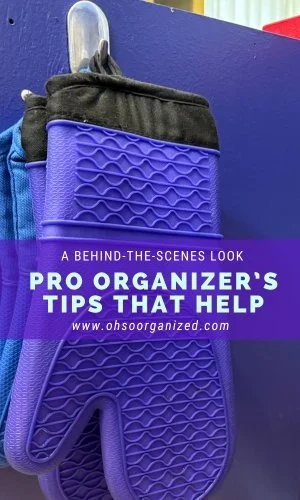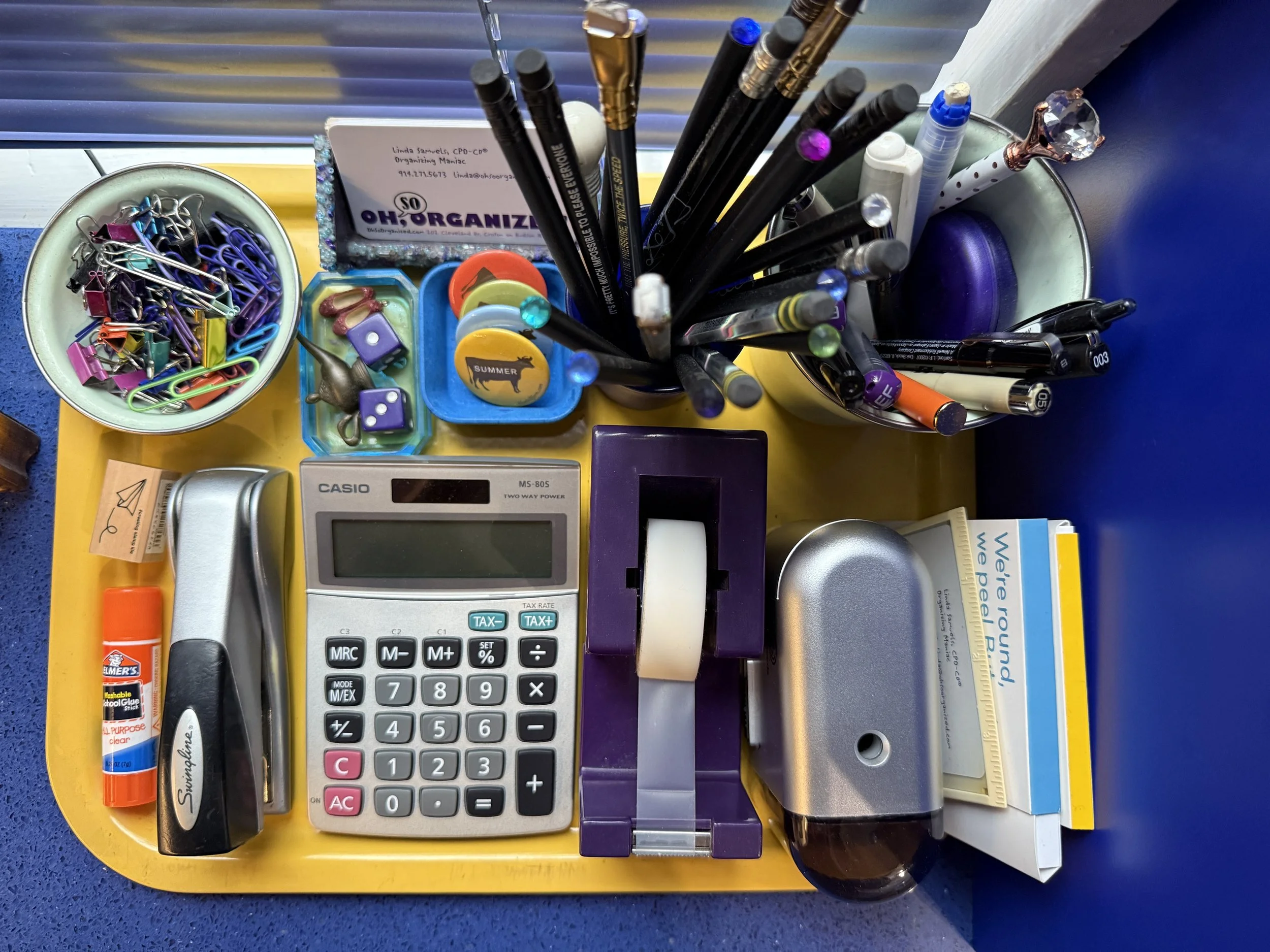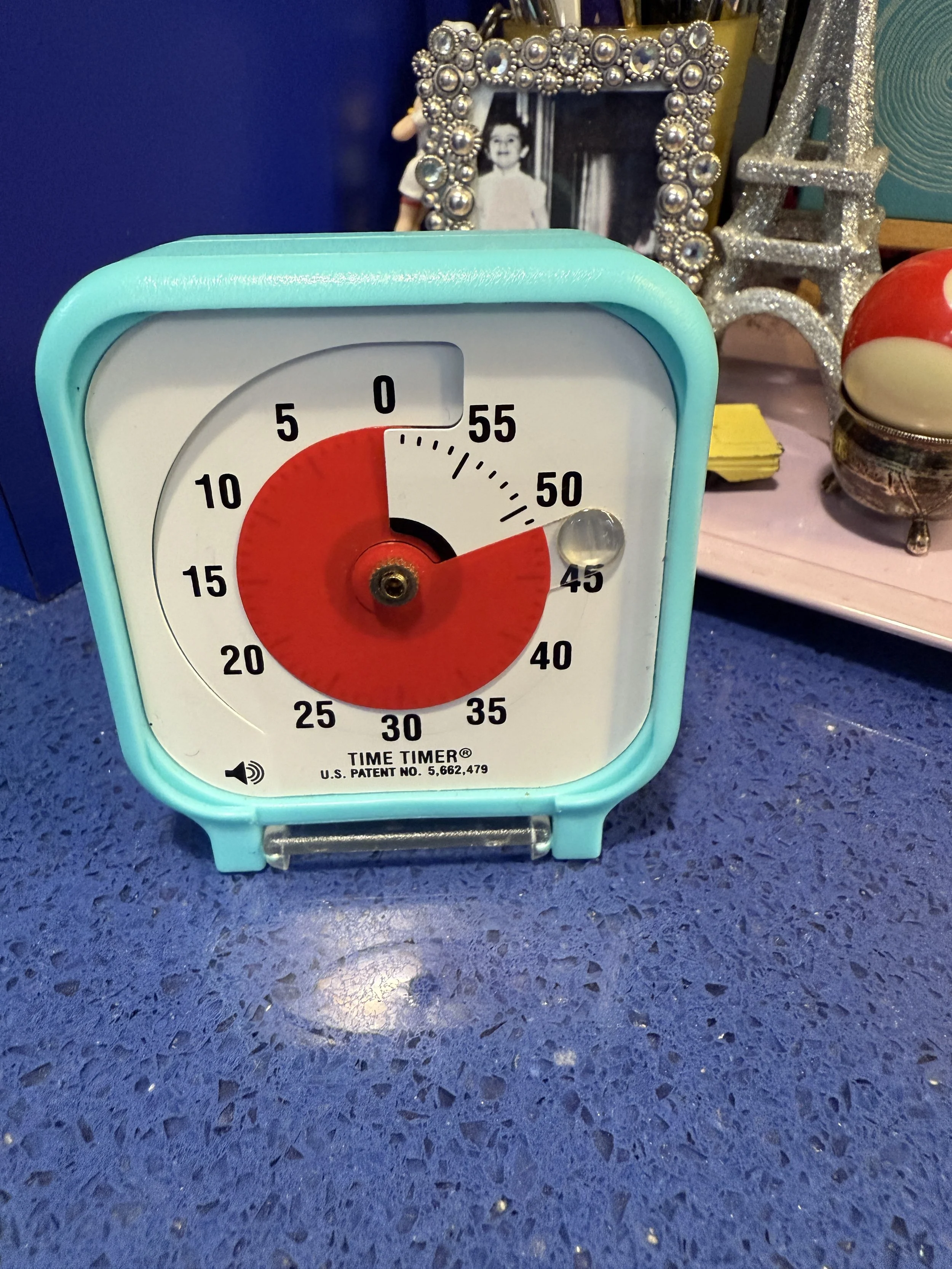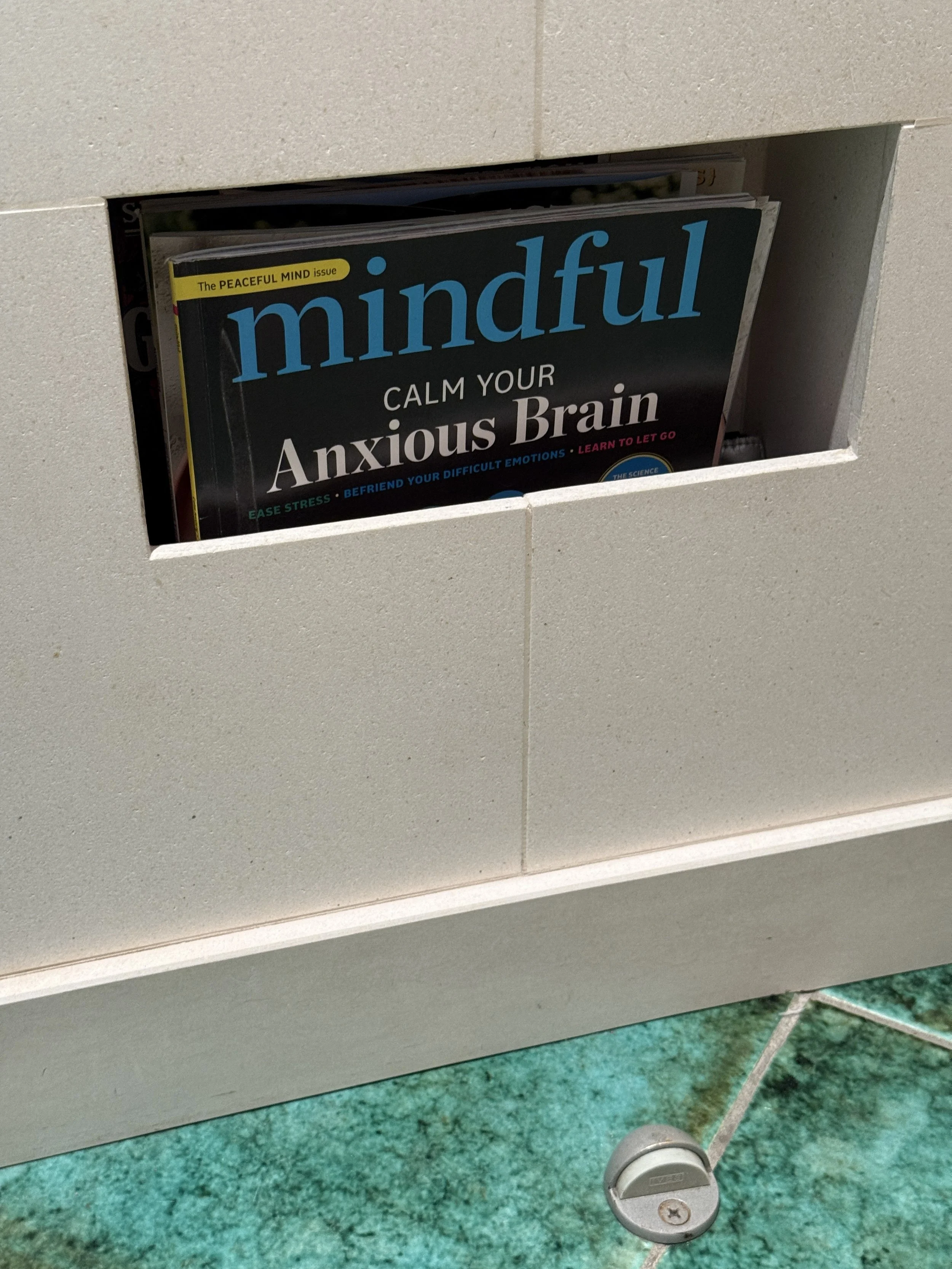Based on my personal experience and over thirty years of helping clients get organized, I’ve learned a few things about what it means to be organized enough. That definition varies from person to person. What feels like being organized enough to me might be different for you. Guess what? That’s okay.
It's a journey to discover what helps you feel, be, and stay organized. I use the word ‘journey’ because getting organized isn’t a one-and-done event. As you go through life stages and changes, your organizing systems will likely need adjustments. Being organized helps make your life flow more smoothly. Being flexible and willing to tweak your systems as needed is part of the process.
Many strategies and products can work for your unique organizational needs. I’ve written hundreds of articles about this on the blog. However, today, I thought it would be fun to give you a behind-the-scenes look at some strategies and systems I use to stay organized with my things, thoughts, time, and space.
What Helps Me, a Professional Organizer, Stay Organized Enough?
Organized Things
Strategy: Create designated ‘homes’ for everything. This gives each possession a specific place to ‘live’ when it’s not in use and a spot to return after use.
Here are some ways I do that:
Hooks next to the desk for my purse and bags
Purse with compartments or mesh zipper bags inside larger totes
Pen cup on the desk that holds only working pens
Tray on the desk that holds frequently used office supplies like a stapler, tape dispenser, calculator, and paper clips
Office supply cabinet with labeled drawers that organize similar items together
Charging station and stands for my iPhone and iPad
Drawer organizers, open bins, closed containers, and shelf dividers to house specific categories in the bathroom, kitchen, dining room, living room, and bedrooms
Hook inside the door of a lower kitchen cabinet next to the stove to hang potholders
Organized Thoughts
Strategy: Use specific methods and tools to help clarify, record, and process thoughts. Some thoughts are personal, while others relate to my professional life. As a verbal processor, I find that writing and talking are effective ways to organize my thoughts.
Here are ways I do that:
Write in my personal and meditation journals
Log tasks and projects in my 2Do app, which can be scheduled for specific dates
Place sticky notes and pens next to phones, beds, desk, kitchen and bathroom to jot quick notes, which get transferred or filed
Keep an AquaNotes® waterproof paper pad and pencil in the shower to capture ideas
Use a Word or Google Doc to organize ideas and projects
File ideas into my blogging binder by category that I want to potentially write about
Enlist help from a family member, friend, or professional to discuss and sort out my thoughts aloud.
“It’s a journey to discover what helps you feel, be, and stay organized.”
Organized Time
Strategy: Build systems you can fully trust. Use effective strategies and products that encourage intentionality and help you gain better control of your time. When possible, use one calendar along with a separate task app to manage your personal and professional life.
Here are ways I do this:
2Do app for scheduling appointments, tasks, birthday reminders, and lists such as ‘Books to Read’ or ‘Books Read’’
Notes app on iPhone with shopping lists for specific stores, mileage log, and health notes
Digital calendar with vertical weekly dated layout
Color-coded calendar to see at a glance where my time is scheduled, the mix of categories, and the white space signifying unscheduled time
Calendly app to schedule client and personal meetings
Analog clocks in my office and kitchen to better visualize time
Use timers to allow me to hyperfocus, remind me when to switch gears, get up and move, or wrap up what I’m doing
I use different timers depending on the need:
Time Timer® , a visual timer for meetings, virtual organizing sessions, and workshops
Clock app alarm with auditory alert on my iPhone for switching gears, cooking, and notifying of upcoming meetings
Kitchen timer on the stove with auditory alert for cooking or cleaning something with timed instructions
Only commit to something new after reviewing my current time commitments
Respect my time and know when to say “yes” or “no”
Have clear work and personal boundaries
Organized Space
Strategy: Define the purpose and designate zones for each room and area. Organize spaces to support their intended use, maximize the available area, and minimize clutter.
Here are some ways I do that:
Guest bathroom with a in-wall magazine holder
Kitchen with a hot beverage station
Pantry with labeled Elfa drawers for storing gift wrapping supplies
Laundry room with closets for storing extra cleaning products and paper goods
Entryway with cushioned bench and open cubbies below to sit while taking shoes on and off and for storing most frequently worn shoes
Office with a wall slot to fold up and discreetly store my folding screen when not in use
What Helps You Organize Your Things, Thoughts, Time, and Space?
Getting organized enough can help create more ease in your life. If you’re feeling overwhelmed by everything, focus on one category at a time to improve. Which area needs the most attention? Which category do you want to work on first? What helps you feel organized enough for your things, thoughts, time, and space?
I’d love to hear your thoughts. I invite you to join the conversation.
How Can I Help?
Would you like support with getting organized? I’d love to help! Virtual organizing is an extraordinary path forward – Local feel with a global reach.
Let’s talk. I’m easy to reach.
Email me at linda@ohsorganized.com or
Call 914-271-5673
Getting organized is possible, especially with support.


















